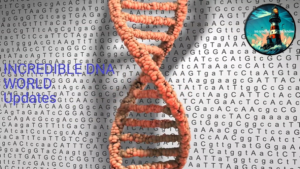
anything useful, in the easiest way

anything useful, in the easiest way
INCREDIBLE DNA WORLD | Updates
The discovery of DNA in 1953 by James Watson and Francis Crick was a monumental moment in the history of science. The double-helix structure of DNA allowed scientists to understand how genetic information is stored and transmitted from one generation to the next. This knowledge has since revolutionized the world of science, leading to many significant advances.

Incredible DNA
One of the most important applications of DNA is in understanding genetic diseases. With the help of DNA sequencing, researchers can identify genetic mutations that cause diseases and develop treatments that target those specific mutations. This approach is known as personalized medicine, and it has the potential to revolutionize the field of healthcare.
Moreover, DNA analysis has also revolutionized crop yields. Scientists can now use genetic engineering to modify crops, making them more resistant to disease and pests. This has helped to increase food production and improve the quality of crops, which is especially important given the increasing global demand for food.
Today, the use of DNA has expanded to include a variety of applications beyond the confines of science. For instance, DNA can be used to trace ancestry, diagnose diseases, and even identify criminals. DNA profiling has become an essential tool for law enforcement agencies around the world. DNA evidence can be used to solve crimes that were previously unsolvable, and it has helped to exonerate innocent people who were wrongly convicted.
In medicine, personalized medicine is becoming more prevalent as doctors can now tailor treatments to a patient’s unique genetic makeup. This means that patients may experience fewer side effects and more effective treatments. Moreover, DNA sequencing has also enabled doctors to identify the genetic causes of diseases and develop treatments that target those specific mutations.
In addition, DNA-based biometric security systems have become increasingly popular. These systems are used to create secure access to buildings, data, and other sensitive information. By comparing a sample of DNA with a database of stored genetic profiles, DNA-based security systems can reliably identify individuals. DNA-based security systems are becoming more prevalent as the technology advances, and they could potentially replace traditional forms of identification such as passwords and ID cards.
Lastly, DNA could potentially be used to develop new forms of energy. Research into the use of DNA as an energy source is still in its infancy, but it could prove to be a groundbreaking development. DNA-based energy could be cheaper and more efficient than traditional energy sources.
Conclusion
In conclusion, the discovery of DNA has revolutionized the world of science, and its applications have expanded to include a variety of fields beyond science. The use of DNA in medicine, security, and energy is only beginning to be tapped, and the potential for further applications is endless. As technology advances, we could be on the brink of a revolution in the way we use and interact with DNA.
Thank you for reading us.
“so useful to know” team